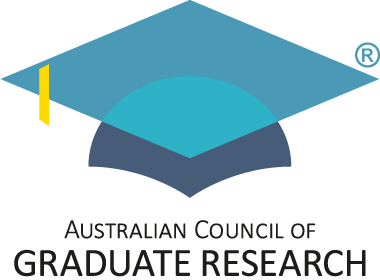Dr Narelle Tunstall
Managing Editor, Graduate Research Impact
As if doing a PhD isn’t hard enough.
The heavy workloads, candidate debt, and uncertain futures mean that candidature and mental health are intertwined and affect one another (and why the ACGR has developed Good Practice Guidelines for Mental Health and Wellbeing).
But on top of experiments not working and looming deadlines, what if you’re also questioning your gender identity or your sexuality or are one of the many LGBTQA+ community who are experiencing homophobia or transphobia?
On top of the known mental health issues encountered during a PhD, research has shown that a disproportionate number of LGBTQA+ Australian’s experience poorer mental health outcomes than their peers.
So, it’s a good thing there are organisations like Wear it Purple who strive to foster supportive, safe, empowering and inclusive environments for young LGBTQA+ people.
Wear it Purple Day
Last Friday was the annual Wear it Purple LGBTQA+ awareness day. The 2021 theme was ‘start the conversation, keep it going’ so I’m writing this to keep it going for at least a few more days…
The Wear it Purple team, a student run, not-for-profit organisation, encourage rainbow community members and allies to “share their stories, to gently educate on LGBTQA+ issues, to start these conversations… And continue them 365 days of the year”.
So let me tell you a story.
A story about changing your identity during your PhD
Once upon a time there was a young person questioning their gender identity.
They started a PhD and during their candidature they made a decision.
One day soon after this decision, the PhD student was due to give a talk about their latest PhD research at the group meeting.
They put up their introductory slide, with a new name and new pronouns.
And introduced themselves. (And then presented their latest research results).
At the end of the talk a postdoc in the group asked the student a question about the research but (accidently or absentmindedly?) used the name they had known the student as for the last few years.
The student corrected the postdoc. The postdoc apologised and used their correct name.
And that was that.
Everyone understood. New name. New pronouns.
Accepted.
Now, there is no doubt that getting to this point had not been quite so simple. And the student knew they still had a few things to figure out. But their colleagues – students, postdocs, and senior academics alike – accepted this identity change without a blink of an eye. And from that day forward the student felt safe to express their true self.
The End.
Start a conversation… keep it going.
Of course, this easy acceptance is how it should be, but we know it’s not always how it is.
If this happened in your workplace, how do you think people would react?
Would everyone be so accepting?
Would the student have felt this was even a possibility open to them?
Research exploring the health and wellbeing of LGBTQA+ young people
The issues faced by the LGBTIQ+ community are as diverse as the community itself. So it’s also a good thing that research is being conducted to explore the health and wellbeing of LGBTIQ+ young people. The Australian Research Centre in Sex, Health and Society (ARCSHS) based at La Trobe University, has conducted the largest national study series, Writing Themselves In, exploring the health and wellbeing of LGBTIQ+ young people in Australia.
The ARCSHS studies examine the impact that stigma and discrimination have on the health and wellbeing of LGBTIQ+ young people, as well as seeking to better understand who LGBTIQ+ young people turn to when in need. The Writing Themselves in 4 report was released in February 2021 with support from Rainbow Health Victoria.
This new research report will help organisations, services and government make informed decisions about how to best support the health and wellbeing of LGBTIQ+ young people.
An animated video has also been produced that includes reflections from members of the LGBTQA+ Youth Advisory Committee on the findings of the study, and their vision for positive change to improve lives.
Watch the video. Share it.
And if you have a story to tell, start a conversation…and keep it going…

Leave a comment